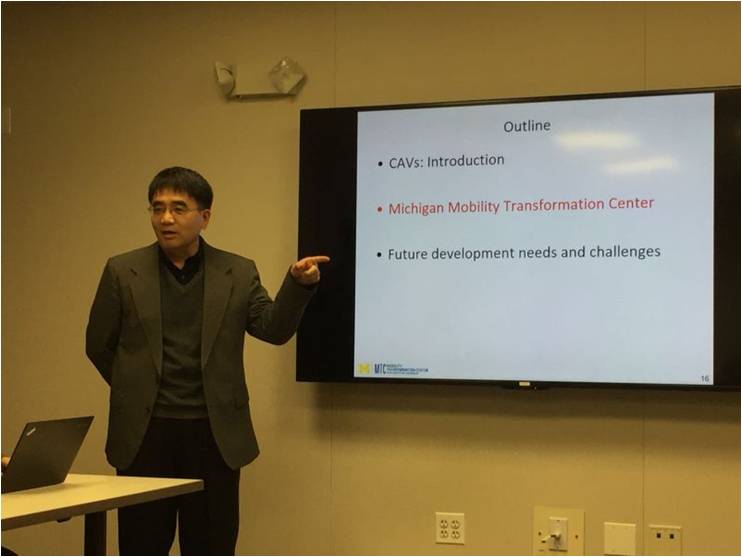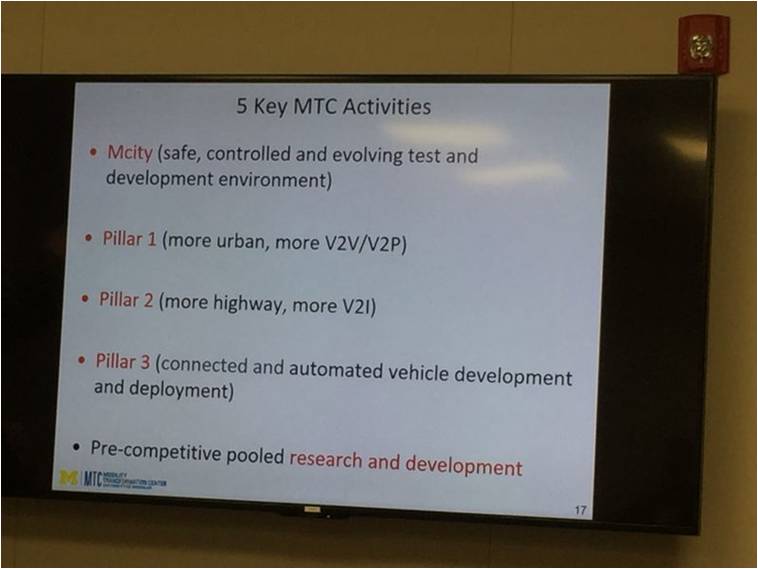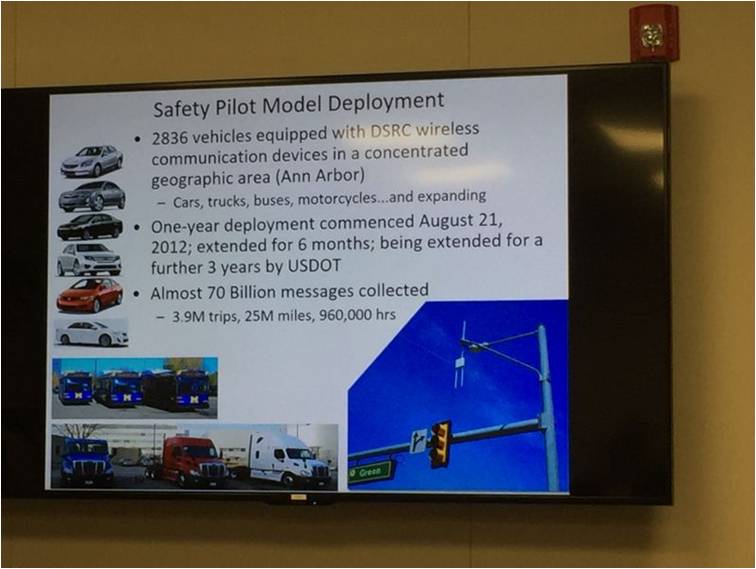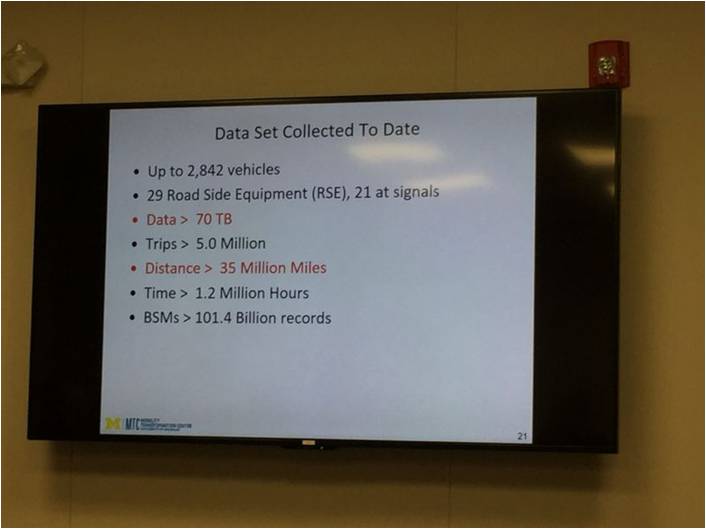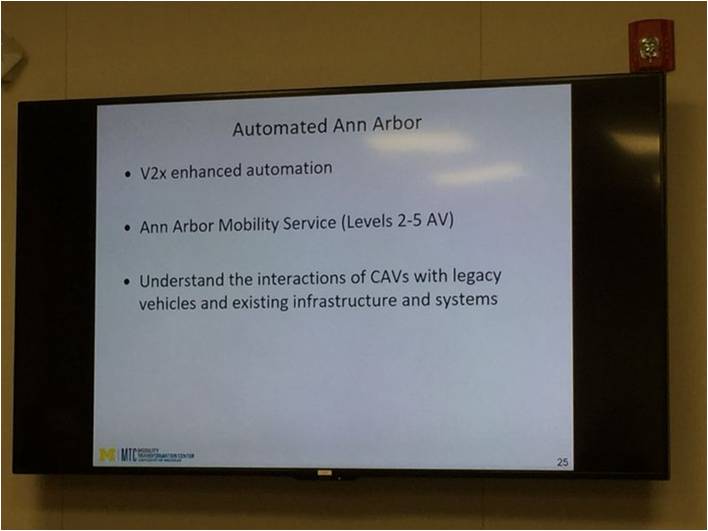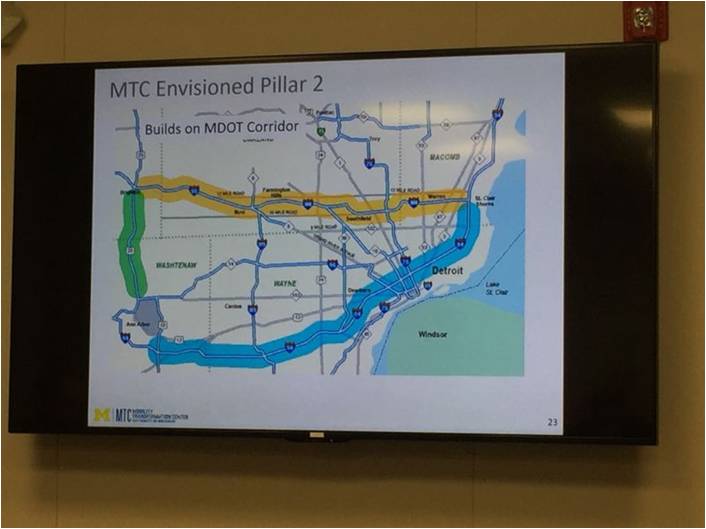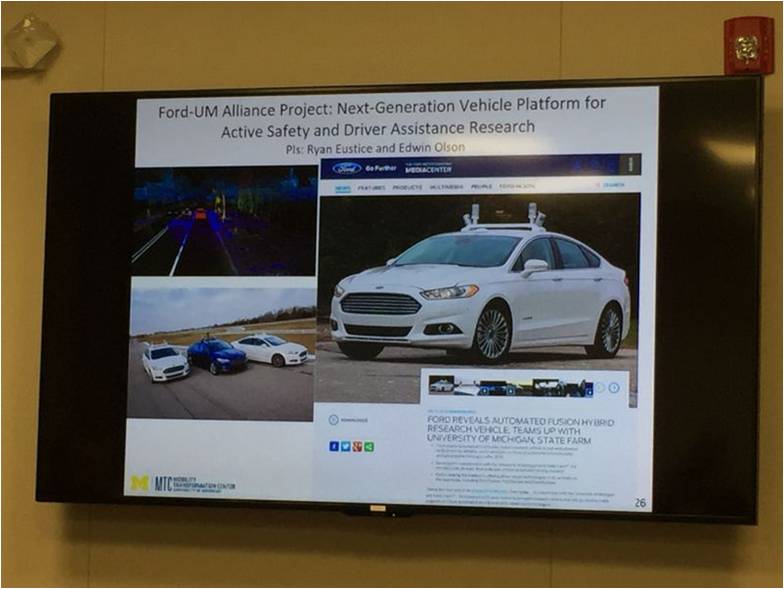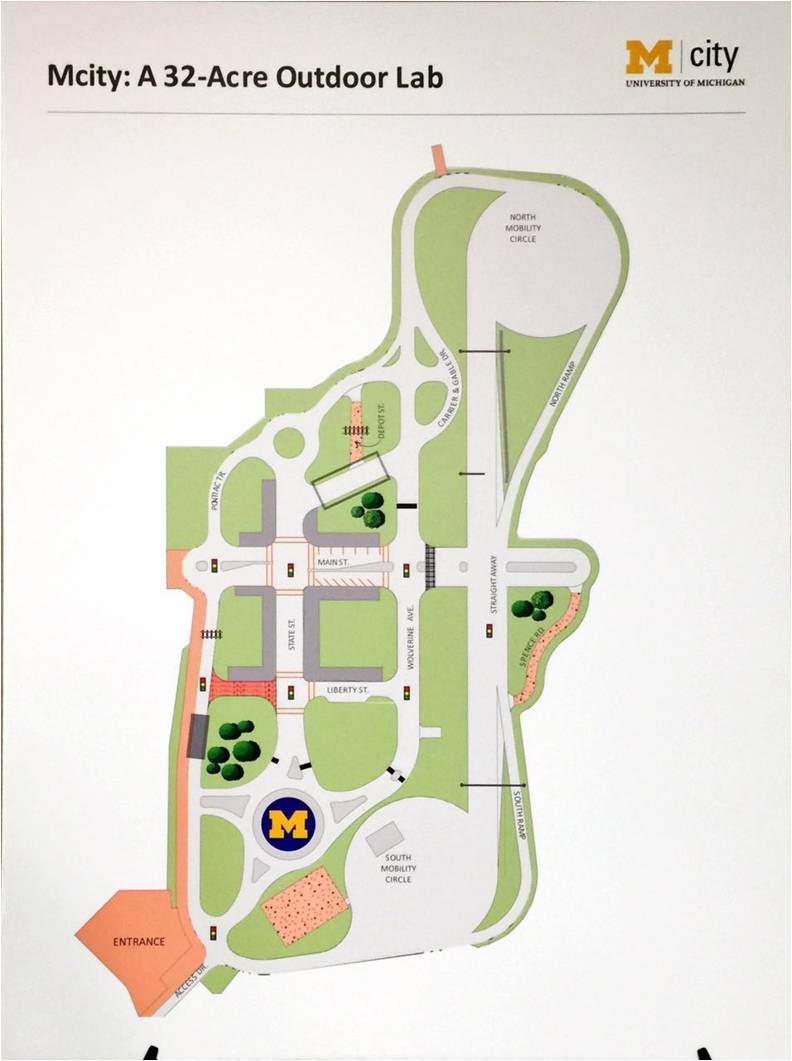Remark:As the representative of TiAA council units, our CEO Mr. Han Minghua participated in the technical exchange about auto pilot and service information in united States. The main topics of the technical exchange would be released continuously on website.
On 28th, March 2016:
The first stop: Visit the institute of intelligent transportation/unpiloted and MCITY in UMich
University of Michigan with over 200 years history established the globally first unmanned test MCITY in July, 2015, and carried out V2V, V2I and V2P test to over 2000 vehicles in Ann Arbor on the base of DSRC. The institute accumulated rich data in the field of Human Factor, and built the globally first unmanned test field MCITY with the cooperation of Michigan Federal Government. Till now, it has carried out the unmanned test for FORD, GE, TOYOTA, HONDA, DELPHI and other dozens of car factories and Tie1 suppliers at a fee of USD10, 000 per day.
Firstly let’s take a look at the simulated town MCITY for unmanned test. Located in Ann Arbor, with a coverage of 32 acres (about 129,000 Square meters), Mcity is established by University of Michigan, at a total cost of USD $ 10,000,000(with the cooperation between university and enterprises). It is the first simulated town in the world passing the environmental variable control design, built for the test of unmanned vehicles, V2V, V2I and other vehicle networking technology.
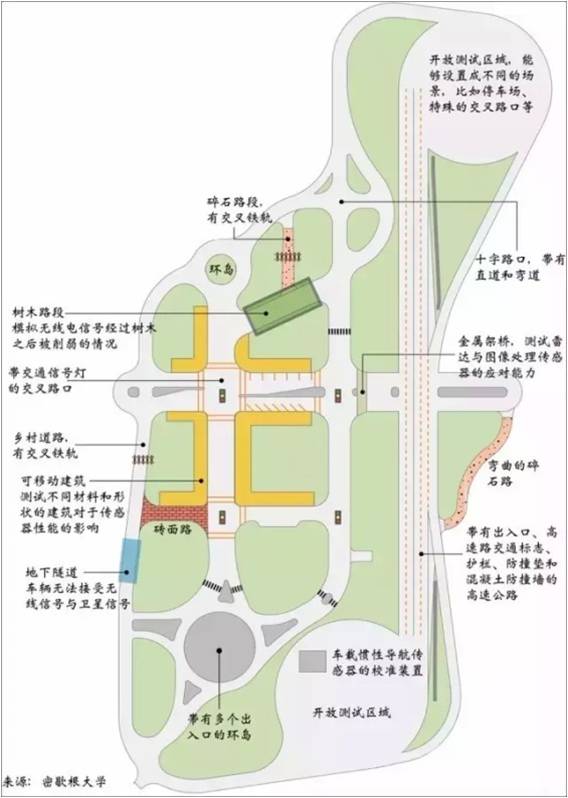
The above is the layout of MCITY, which includes two sections:
1. The test area for simulating high speed on expressways;
2. The test area for simulating slow speed in downtown or suburb
Now let have a look at the real map of MCITY.
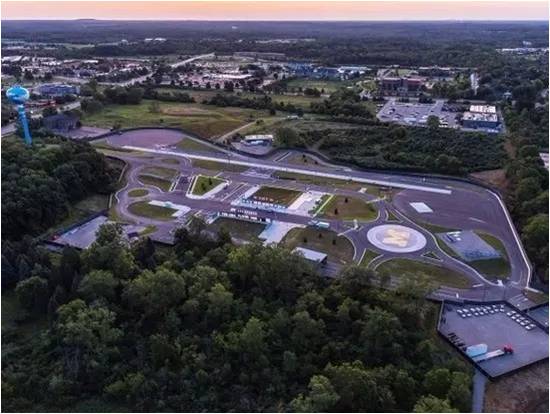
In such simulated town, MCITY, unmanned vehicles could freely roam. It has no difference from the actual environment and takes most environments into account. There built bridges, tunnels, tress, poles, street lamps, railway crossings, highways, intersections formed by roads in different angles, roundabout and other various buildings. In the town, there are almost all types of signal lamps and road signs from all over USA. You could see them here and there, even the paint traffic signs and faded road signs.
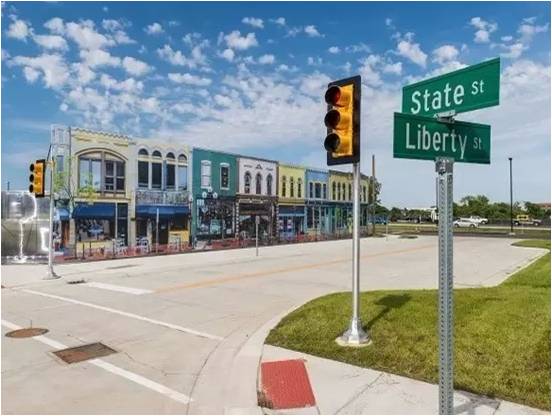
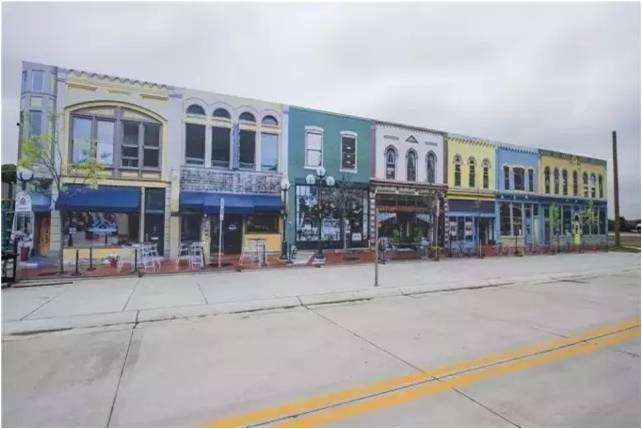
Here even lives a Sebastian, which is a pedestrian controlled by machinery devices. He could randomly walk through any crossroad, likes to suddenly jump to the front of a vehicle, to test if the unmanned vehicle could take emergent measures or not.
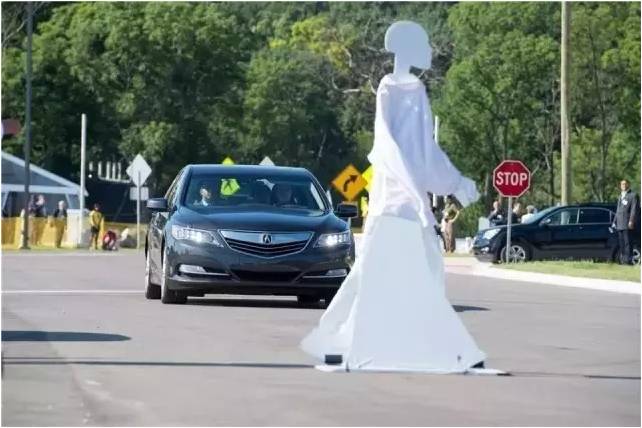
The unmanned test field provides a nice scene for the research of unpiloted. No doubt that it would greatly promote the development of unmanned technology. Till now, many car factories have cooperated with University of Michigan, to test their unmanned vehicles in MCITY. In our opinion, it has significance, as for the unmanned driving. We imagine that one day in the future there are unmanned automobiles on the roads, how can we certify and approve the vehicles? Which standards should they meet to be allowed to drive on roads? Now it is still a blank. The simulated towns like MCITY maybe the certificate authority center for unmanned automobiles, where in various simulating scenarios, the unmanned vehicles were tested. Only those passed by the test could drive on roads.
There were two technical exchange seminars in the center.
1. By the research assistant Shan Bao from the institute center
It was mainly about the technical exchange of HUMAN FACTOR. Based on over 2000 installed testing vehicles in the institute, the institute accumulated rich data, including vehicle sensing data (radar, laser, visual and GPS position and not all vehicles were mounted all the sensors), and on that basis carried out big data analysis on driving behaviors.
Here is one of their typical projects.
2. A technical exchange organized by Professor Peng Hui from the institute.
It mainly aimed at the technical exchange about auto pilot technology, its test and the cooperation status with industries in the institute. As one of the universities in United States early researching auto pilot technology,
University of Michigan won the 4th prize in the unmanned driving organized by DARPA. The team’s technical director, along with the ones from the top 3 teams, has been entering into industrial circles. The technical exchange
by professional Peng included:
1) Five key MTC activities
2) The future demand and challenges
